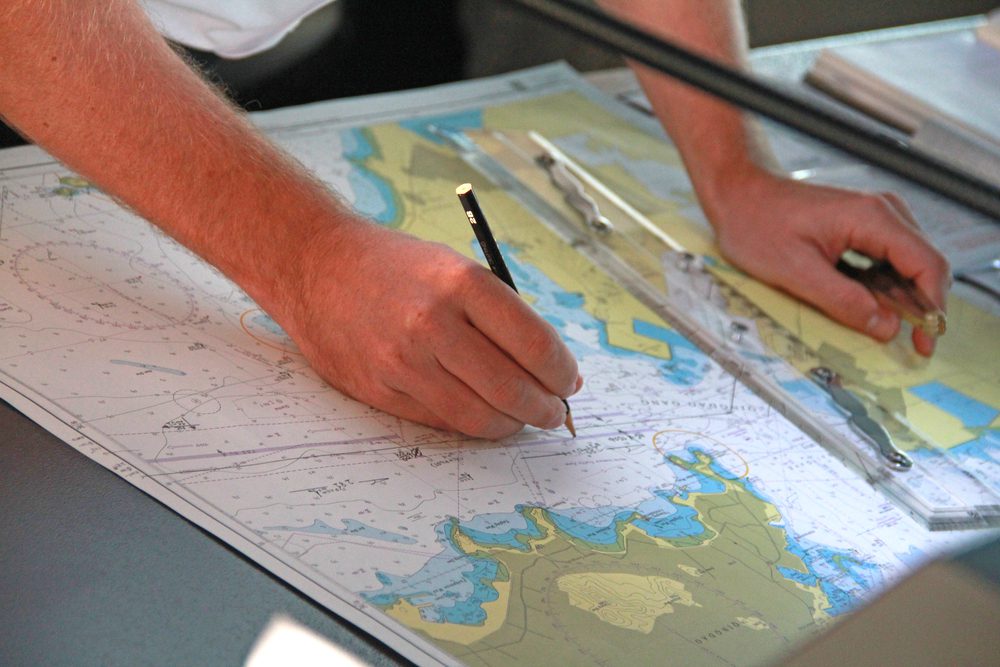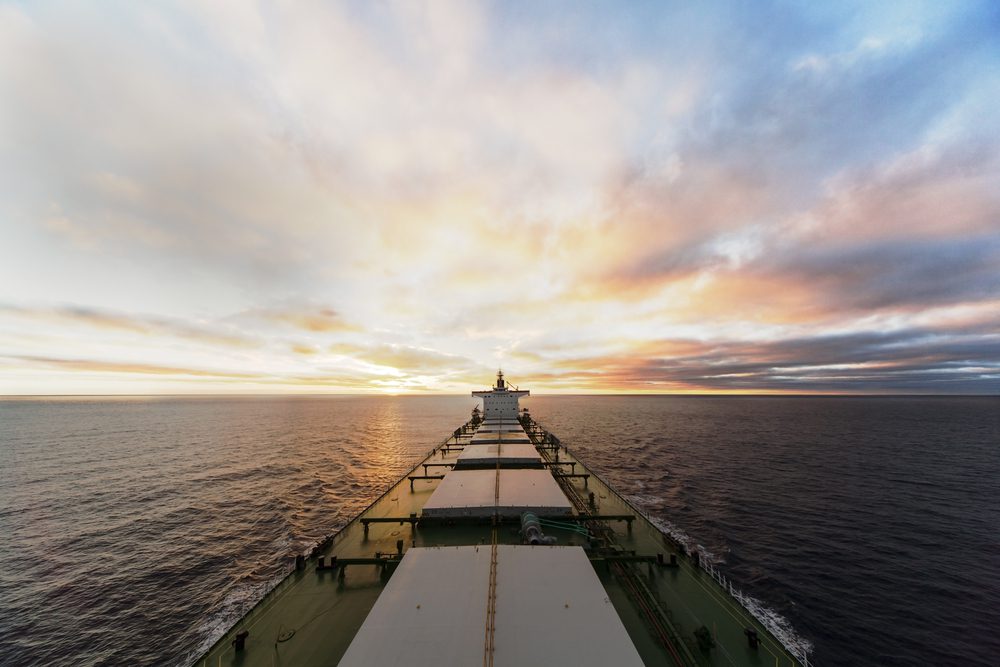In “Refrences to Joseph Keefe”>another excellent article, Maritime Executive‘s managing editor Joseph Keefe is dead on with his assessment of salary (find the article HERE) and working condition improvements in this tight labor market. The following comment in response to a discussion with one Captain sums up the discord between shore side managers and shipboard personnel perfectly;
Gathering that he was earning well in excess of $100,000 per year with about six months vacation, I chided him for complaining about a job situation that a lot of people would kill to obtain. My comments were NOT well received.
Well had Keefe called any member of gCaptain’s staff we could have gently clued him in on the likely response. The reason? Well he lays out all the major points but let us add a few minor ones. Mariners currently in top positions aboard ship are loyal to their profession. We have seen tough times and stayed at sea to the protest of loved ones and in doing so have payed the price. From high points to low a mariners life is one of hard misses. Personally I’ve sacrificed being with my family on the day of my father’s death and missed the birth of his namesake, my first child, Jack. Mine is one of the least troubling stories but the hardships are not the primary reason for the discord; it’s the rewards, or lack there of. To show my point I offer some examples;
- Mariners in the first Gulf War bravely supplied the troops in countless runs to the war zone and in return received “all you can eat” overtime pay and handsome bonuses. For my wife’s 30 days in the war zone she received little more than a medal.
- Mariner’s salaries are just recently breaking above the levels (not adjusted for inflation) of those in the same position 30 years ago.
- Sailing 30 years ago was an enjoyable experience that did not entail constant communication with management. Email and “real” phone service didn’t exist.
- Port time is currently non-existent.
- The U.S. mariner has historically come at a premium to their foreign conterparts but the gap is closing fast.
- With the decline in the dollar we are suddenly being recruited be European companies that are offering considerable bonuses. U.S. companies are not following suit.
- Specialists in support roles, mostly from Europe, freely share their salaries which can be considerable higher than an American Captain’s.
- The majority of mariners live in areas (New England, Florida, California) of skyrocketing housing expenses.
- Mariners are now getting arrested for incidents that, as CAMM (The Council of American Master Mariners) put it, “were at one point considered mistakes”.
- Today civilians are more likely to ask you how you can work for an Oil Company than reply with a statement once heard often; “Wow, what an interesting job”.
In addition to these points the personnel shortage in our industry is not only a concern of company, it’s a concern for the shipboard management. The simple fact is positions are being filled by people who five years ago would not be considered ready for the job. In the past twenty years crew levels have been brought down to record low levels but overqualified crews “stuck” in positions they long ago mastered have kept the ships running smooth. Today an alarmingly high number of vessels list 100% of their officers as short-service employees (in the position for less than a year). This is not only a problem for officers but also for those on shore. Ships rely on a foundation of support from town that increasingly comes from managers lacking experience due to the same stratospheric rise in the number of promotions. These two factors equate to rising difficulties for Captains, Chief Mates and their counterparts in the engine room.
A manager recently asked a good friend of mine if he was ready for the big promotion to Captain, his response angered the boss. I can only assume the anger derived from the fact his statement was both accurate and troubling. He replied, “Hell no, I have no business being Captain. Professionally I’m not close to being ready but if I’m not promoted in the next few rounds you’re making a big mistake because I can run circles around my competition!” Not a good sign for those who need to trust the next man in charge of a 500 million dollar asset.
What he did not tell the manager is also reveling, “Why take a promotion for a few extra dollars and have to sit at a desk filling out paperwork, answering phone calls from town and dealing with petty squables. The captain use to have a stateroom twice the size of a seaman’s and fly to work in first class, now he just gets paid more.”
While the article was impressively accurate the following comments are not entirely correct;
His pay had been augmented three or four times in the past 18 months and his employers had confirmed that pay scales had at least doubled during that period.
While it’s conceivable that the payroll has double I’ve witnessed between 10 and 40% increases in senior mariner pay.
Gathering that he was earning well in excess of $100,000 per year with about six months vacation
“But you get Six Months vacation” is the first thing mariners hear during salary negotiations but it’s a misnomer. I don’t personally know a mariner who took less than 4 weeks of training classes last year and know many Chief Mate candidates who took between 12 and 16 weeks of class… that brings us down to 5 months “Vacation”. Subtract travel days, visits to the Coast Guard and days spent at the union hall and your down to less than 4.5 months (139 days).
The average American takes 15 days vacation, 8 personal days and 10 holidays. Add this to the number of weekends and (if my math is correct) shore side personel have 137 days off or only 3 days less than the mariner. Ever leave the office early on Friday or take a long lunch to visit the dentist? Mariners work 12 hours a day, every day which equates to nearly double the number of hours a “40-hour per week” American works during the year. Now I can begin to understand why gCaptain’s email box gets flooded with shore-side job related questions.
The number one reason for the discord is rooted by Keefe’s statement;
It is tempting to dismiss this as seafarer whining, but maritime executives everywhere had better strap on their hearing aids and listen to what their employees have to say. To do otherwise will only exacerbate the current crisis.
On the return trip for a promising shore-side job a prominent divorce attorney joined the discussion on NPR’s Fresh Air and said he often sits at the arbitration table looking at two people in love who share a life others only dream about and asks himself why. The reason is not that argued by either party, the reason is that neither listens to what the other is saying.
Mariners are being marginalized and management isn’t listening. Captains no longer have the power to solve problems aboard ship without approval from managers who frequently ask “Who died and left him in charge?”. This response filters down to the crew who justly assume their boss can not communicate their problems to distant offices ashore. This problem is exacerbated by the increased regulatory pressures, technological requirements, and industry opposition not to mention burdensome levels of training, paperwork and hands-on management from shore.
So while the “24/7 satellite television, e-mail, voice comms, excellent (but SSDD) food and media room” are nice do something that compensates me for the extra work I’ve taken on lately or double salaries instead of payroll.
What are management’s concerns? Not sure, I’m knocking on the divorce attorney’s door and just not listening!
-JD
This post is in response to Maritime Executive’s article:

 Join The Club
Join The Club










